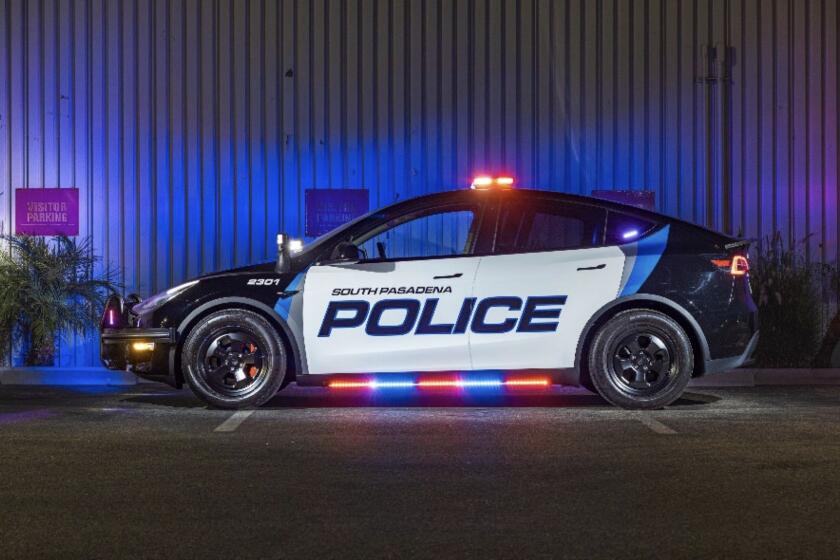Attorneys object to proposed settlement in Hyundai, Kia MPG claims
Several law firms are objecting to the proposed settlement of a class-action suit seeking damages for the inflated fuel economy claims of South Korean automakers Hyundai and Kia.
The attorneys said the settlement is designed to discourage owners of the vehicles from filing claims and then allows the automakers to keep any uncollected money.
Moreover, the claims aren’t handled by a third party but rather by the automakers, which would have a financial incentive in delaying processing or denying claims, the attorneys said in a filing with Judge George Wu of the Federal District Court in Los Angeles.
“They set up a compensation system in which it is difficult to make a claim or even know that you have a right to make a claim and then the defendants get to keep all the money when consumers don’t make claims,” said Harvey Rosenfield, an attorney with Consumer Watchdog, a nonprofit consumer advocacy group. “This kind of setup is a red flag that warrants the rejection of this proposal.”
Other firms involved in the litigation disagreed.
“It is a generous settlement that provides consumers with a lot of generous choices,” said John DeStefano, an attorney with Hagens Berman Sobol Shapiro, the Seattle law firm that crafted the proposed settlement.
He said the compensation offered in the agreement is big enough so that owners of the vehicles will take the time to read the claim forms, evaluate their choices and make a claim.
Of the 60 law firms representing plaintiffs in the case, 47 have expressed support for the settlement. Seven firms have not indicated their position. Six firms have formally opposed the settlement, according to Consumer Watchdog.
A hearing on the proposed settlement is scheduled for June 26.
After an Environmental Protection Agency review of the fuel economy ratings on some of their top-selling models two years ago, Hyundai and Kia admitted overstating the mileage ratings of about 900,000 vehicles.
The companies — which are corporate siblings — blamed the overstated mileage ratings on “procedural errors” at a jointly operated test center in South Korea.
The EPA began investigating after consumers complained.
The South Korean automakers issued an apology and said they would give special debit cards to the vehicle owners to make up for the difference in the lower miles per gallon logged by the vehicles. Consumers and class-action attorneys said the debit card system was too complicated for car owners and filed a series of lawsuits seeking damages.
In December, Hyundai Motor America and Kia Motors America, the U.S. sales arms of the South Korean automakers, said they had reached a preliminary $400-million settlement in the class-action litigation.
Under that plan Hyundai will offer the owners of the models with the overstated ratings a lump-sum payment that will average $353. The payment varies depending on whether the vehicle was bought or leased. Kia’s average payment will be $667.
The proposed settlement gives owners other options. They can continue with the debit cards, which offer reimbursement for the shortfall in the companies’ mileage claims and a 15% inconvenience premium. Those owners, however, must report their actual mileage to their local dealers.
Or consumers can get a dealership credit of 150% of the lump-sum cash payment amount to use on service or repairs, or a credit of 200% of the cash amount toward the purchase of a new Hyundai or Kia vehicle.
The Hyundai vehicles with inflated fuel economy ratings are the Accent 2012-13 model years, Azera 2012-13, Elantra 2011-13, Genesis 2012-13, Santa Fe Sport 2013, Sonata Hybrid 2011-12, Tucson 2012-13 and the Veloster 2012-13
The affected Kia are the Optima Hybrid 2011-12 model years, Rio 2012-13, Sorento 2012-13, Soul 2012-13 and Sportage 2012-13.
Attorneys in the case have yet to disclose how much money they will claim for pursuing the litigation.
“They would be applied for later out a separate pool that would not affect or diminish the consumers’ recovery,” DeStefano said.
If the proposed settlement is approved later this month, the car owners will be mailed the details and at some later date there will be a chance for more objections to be filed before a final approval hearing. But as a practical matter, most of these settlements follow the agreement reached in the preliminary hearing, attorneys said.







